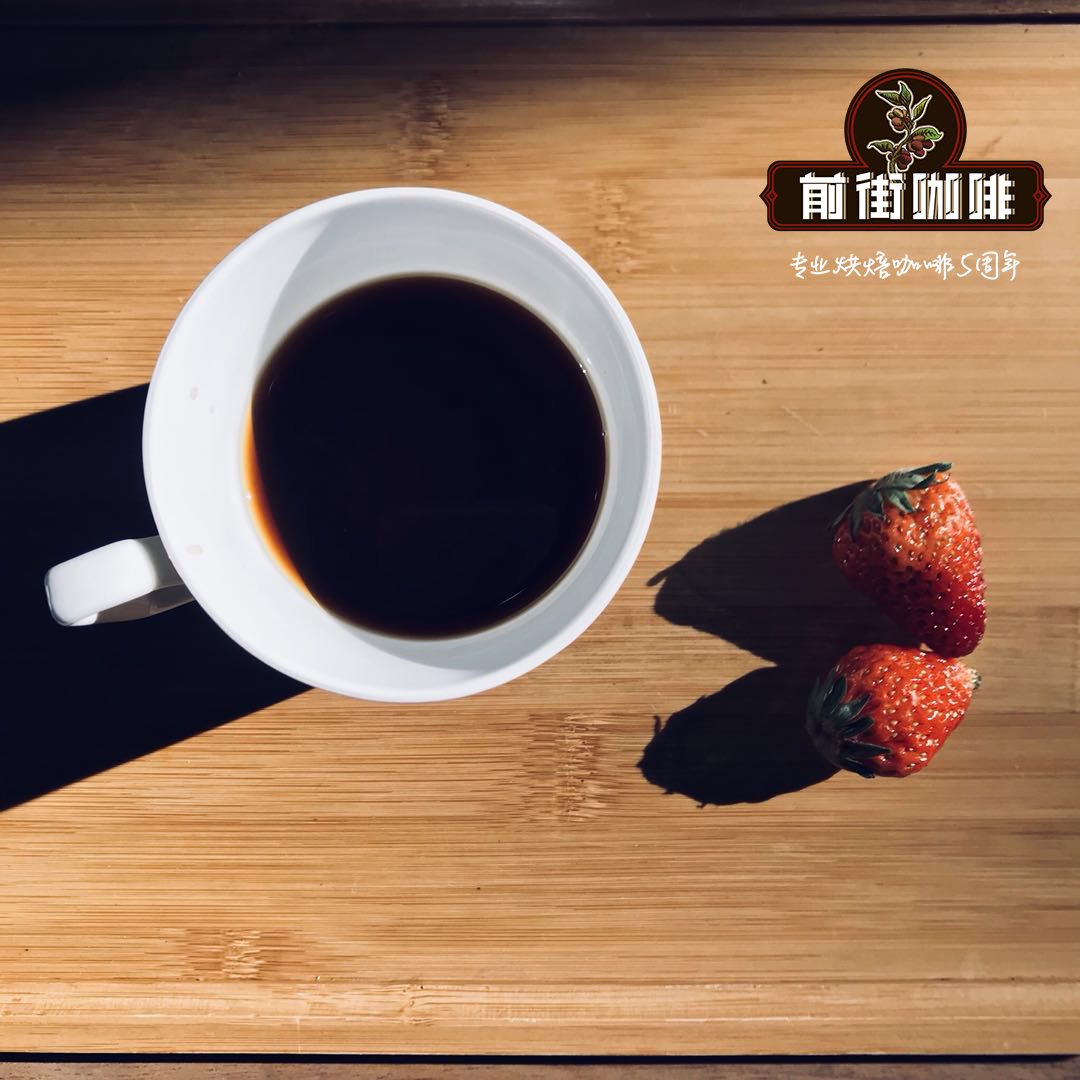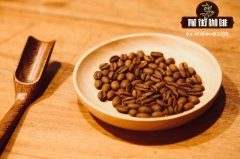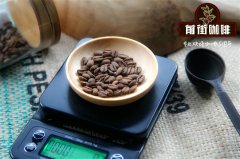Kenyan Coffee Regional Flavor description Kenyan Coffee targeting Japanese Market Kenyan Coffee characteristics

Professional coffee knowledge exchange more coffee bean information please follow the coffee workshop (Wechat official account cafe_style)
The quality of Kenyan coffee is strictly controlled, and it is divided into AA,AB,C,E,PB,TT,T,ML,MH according to size, particle and shape. These grades mainly distinguish the shape and size of beans, but not absolutely represent the quality of beans. Many people believe that beans with larger grains contain more oil that produces the aroma of coffee, and because of this, beans with larger grains are more expensive in the market.
Take Kenya's AA as an example. In the same grade of beans, the highest grade is manor beans, followed by "+". Then, according to the general AA,AB grade, the AA,C grade is smaller, and the E grade is extra-large elephant beans. TT, T, ML, and MH are local non-flowing beans.
PB (Peaberry Dou)
In particular, round beans (PB) are usually produced at the end of coffee trees that bloom too late or too early. Because the yield is rare, accounting for only 10% of the output, the round beans produced by the same coffee tree are more expensive than other flat beans (Flat Bean). When round beans are specially collected together, defective beans are mostly removed, the proportion of defects is reduced, and the particles tend to be more consistent, making the baking more uniform and taste improved.
The coffee grading system in Kenya is under the policy of government-led management of quality and guidance to coffee farmers.
The Kenya Coffee Agency, an official unit set up by the government after the coffee is harvested, is established.
(Coffee Board of Kenya referred to as CBK), founded in 1933, in the capital Nairobi
(Nairobi) Coffee Exchange (the Nairobi Coffee Exchange) conducts weekly
A regular auction, an auction system managed by the government as a whole, according to the grading system
Taking "particle size", weight, shape and appearance as the standard is the basis for the main auction price.
The official grading system for raw beans in Kenya is as follows:
Class E (elephant beans):
This grade is the largest grain grade of Kenyan coffee beans, above 18 mesh (18 + 64 "), also known as
The quantity of elephant beans is so small that this grade of goods can hardly be seen in the Taiwan market.
AA level:
Particle size (Screen Size) between 17 and 18 meshes (7.20mm sieve)
AB level:
Particle size (Screen Size) is between 15 and 16 meshes (6.8mm--6.2mm sieve)
Accounts for the majority of output, and is also the most common grade of raw beans.
PB level:
Round raw beans, accounting for about 10% of all coffee beans
Level C:
Particle size (Screen Size) between 12 and 14 meshes (4.8mm--5.6mm sieve)
TT level:
From AA and AB grade beans, lighter raw beans blown by an airflow filter
It means that the bean is soft and the hardness is not up to standard.
Level T:
Particle size (Screen Size) less than 12 mesh size (4.8mm screen)
From C-grade beans, the lighter beans are blown out with an airflow filter.
It means that the beans are soft, the hardness is not up to standard, and they are small particles, containing some broken and defective beans.
MH/ML level:
Beans that have not been washed and have not been selected because they have been harvested
Falling beans, accounting for about 7% of all coffee beans, belong to the lowest grade beans, only for
Kenyan domestic demand market.
In addition to the above Kenyan national official grading system, other private companies Kenyan exporters
Or raw bean traders, for AA and AB grades of coffee, raw beans are added to the private sector.
Special classification (not officially recognized by Kenyan countries), common ones are: AA TOP,AA+ (plus)
AA++ (double plus), AB+ (plus) and AA FAQ.
"FAQ" is the abbreviation of Fair Average Quality, which means "average"
Fair quality, which is an average standard quality, is the basic model of the AA grade.
AB+ (plus):
Although the grain of this grade is smaller than that of AA, it is a coffee tree with the highest percentage of fruit.
To grade, the largest one is of course the highest price, a little smaller than the largest one, and the flavor is not
It is relatively poor, so we should make a conclusion according to the cup test results. AB class plus plus (+), the same one.
Douzi, because of human factors, the standards of Company An and Company B are different, so they will
Produce different results, after all, there is no unified grading standard for this grade, if you add
Plus (+) will certainly be more attractive.
AA+ (plus) & AA++ (double plus):
AA level has the problem of adding plus (+) or + + (double plus), the same one
Douzi, because of human factors, the standards of Company An and Company B are different, so they will
Produce different results, after all, there is no unified grading standard for coffee flavor.
Cup test results, there is no standard to grade AA+ (plus) or AA++ (double plus)
Can only be used as a reference, everything still has to return to their own cup test.
AA TOP:
As in the case of AA+ (plus) & AA++ (double plus), test the results by cup.
Grading is not the official grading standard of Kenya at present, exporters.
If you add it by yourself, it is inevitable that there will be commercial behavior factors, so it can only be regarded as
For reference, everything still has to return to their own baking cup test, is the correct reality.
As for the distinction of quality, Kenya uses the digital grading method to distinguish the quality of coffee, but this digital grading method is not much publicized, so few people know about it. Therefore, the classification is based on particles, and the PB with different shapes is about the same as AA, but if it is manor or +, it is two or one grade respectively. For example, AB manor beans are about the same as AA+ and PB+.
Kenyan coffee due to different production conditions from year to year, will directly the quality of coffee beans, grading is for reference only.
Kenya's AA grows in an environment of 6600 square feet, making it one of the best quality coffee in the world. Growing on the plateau means that the growth rate will be slower, in this case, coffee beans can absorb more nutrients, allowing the taste to take longer to brew, thus becoming rich. As the finest coffee beans in Kenya, all AA coffee is made from the most impeccable Arabica beans. Treated by washing and refining, the peeling of the coffee fruit is backward, and the farmers will soak the beans in the water tank. In the process, the enzyme of the coffee bean itself will naturally break down the residue on the bean. When it is dried in the sun, the farmer can remove the skin without any effort. After screening, the size of the beans is measured and graded.
There are good beans and good baking to match. To bring out the characteristics of Kenyan AA beans is to bring out its strong citrus and berry flavors. The reason for drinking Kenyan AA beans is nothing more than being attracted by its flavor, almost without a little bitterness. The best AA beans are often roasted moderately, but too high will make it lose its unique flavor. Kenya AA beans are the largest beans produced in China, and the brewed coffee is always mixed with fruit and flowers. Finally, like ordinary individual coffee, coffee beans always need to be freshly processed no matter how roasted they are, and goods that have been in the distribution warehouse for several months need to be avoided when buying.
Important Notice :
前街咖啡 FrontStreet Coffee has moved to new addredd:
FrontStreet Coffee Address: 315,Donghua East Road,GuangZhou
Tel:020 38364473
- Prev

What is the cause of the decline of Puerto Rico's coffee industry? Coffee bean production in Puerto Rico
For more information on coffee beans, follow the Coffee Workshop (official Wechat account cafe_style) Puerto Rico has been in the news recently because its government, which has been saddled with $70 billion in debt for years, officially defaulted in August. Its awkward situation originated from the Spanish-American War of 1898, when Spain surrendered Puerto Rico to the United States.
- Next

Coffee beans from famous producing areas of Mexican Coffee introduction to the characteristics of Mexican Chiapas coffee beans
Professional coffee knowledge exchange more information about coffee beans Please follow the coffee workshop (Wechat official account cafe_style) for many people, it is almost unthinkable to start a day without a cup of coffee. This is one of the drinks that we have been with us since the early morning. It has a delicious aroma and taste, and once it touches our lips, it gives us the ability to start our daily life.
Related
- Detailed explanation of Jadeite planting Land in Panamanian Jadeite Manor introduction to the grading system of Jadeite competitive bidding, Red bid, Green bid and Rose Summer
- Story of Coffee planting in Brenka region of Costa Rica Stonehenge Manor anaerobic heavy honey treatment of flavor mouth
- What's on the barrel of Blue Mountain Coffee beans?
- Can American coffee also pull flowers? How to use hot American style to pull out a good-looking pattern?
- Can you make a cold extract with coffee beans? What is the right proportion for cold-extracted coffee formula?
- Indonesian PWN Gold Mandrine Coffee Origin Features Flavor How to Chong? Mandolin coffee is American.
- A brief introduction to the flavor characteristics of Brazilian yellow bourbon coffee beans
- What is the effect of different water quality on the flavor of cold-extracted coffee? What kind of water is best for brewing coffee?
- Why do you think of Rose Summer whenever you mention Panamanian coffee?
- Introduction to the characteristics of authentic blue mountain coffee bean producing areas? What is the CIB Coffee Authority in Jamaica?

